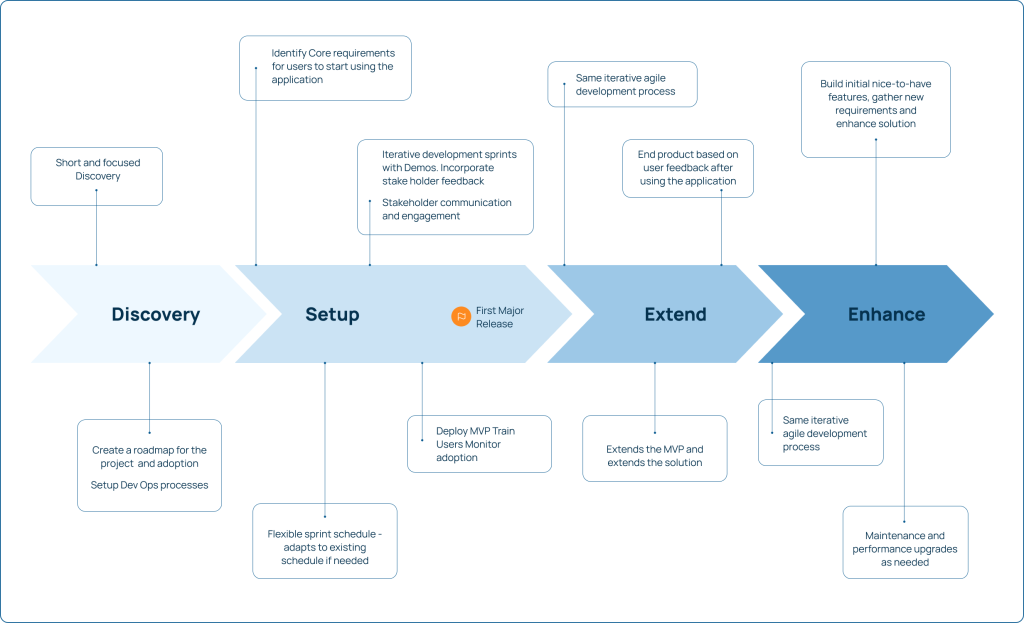Key Takeaways:
- A Salesforce Implementation Partner accelerates implementation and deployment with expert resources, reducing delays and ensuring a well-architected solution.
- Working with an SI partner mitigates risk by prioritizing configuration through best practices, testing, and avoiding costly technical debt.
- An experienced partner helps organizations scale and innovate by knowing how and when to leverage new Salesforce releases, AppExchange solutions, and adoption strategies.
The Importance of a Skilled Salesforce Systems Integrator Partner
Salesforce is one of the most robust and versatile Customer Relationship Management (CRM) platforms available today. But with its power comes complexity. Organizations adopting Salesforce’s capabilities need a skilled Salesforce Systems Integrator (SI) partner to ensure the platform meets their unique needs. Whether you’re new to Salesforce or you’re looking to optimize your existing CRM, partnering with an expert can make all the difference in realizing the full potential of Salesforce.
In this article, we’ll explore what you can expect from a Salesforce SI partner and why you should consider working with an implementation partner.
What Is a Salesforce Implementation?
Salesforce implementation refers to the process of setting up, customizing, and integrating the Salesforce CRM platform within your organization. It involves understanding your organization’s unique needs and configuring the Salesforce platform to meet those needs. Salesforce isn’t just a one-size-fits-all solution—it’s highly customizable, which means that businesses must assess their needs and determine which features to use and how to tailor them.
The key objectives of a Salesforce implementation are to optimize workflows, improve efficiency, and enhance the customer experience through automation, data management, and seamless integration with other systems.
However, implementing Salesforce can be complex and can require an experienced partner who understands the nuances of the platform and can navigate its various tools to achieve the best outcomes for your organization.
What is a Salesforce SI Partner?
Salesforce has an extensive partner ecosystem, including Salesforce Systems Integrators (SIs) as well as Salesforce Independent Software Vendors (ISVs). This partner ecosystem can be explored through the Salesforce AppExchange to allow you to find the right partner to fit your needs. When selecting a Salesforce SI partner, you’ll need to decide whether you want a fully managed service, a hybrid approach, or a self-managed solution. Each option offers different levels of support and involvement.
Fully Managed Service
With a managed service, your Salesforce implementation partner handles every aspect of the project from start to finish. This includes strategy, configuration, data migration, training, and ongoing support. Managed services are ideal for organizations that lack in-house expertise or resources to manage the complexities of Salesforce on their own. The partner takes full responsibility for ensuring successful implementation and long-term optimization.
Hybrid Approach
A hybrid approach combines both managed and self-managed elements. You may choose to take the lead on certain parts of the implementation, such as user training or system integration, while your SI partner handles more technical tasks like customization and data migration. This approach allows for greater flexibility while still benefiting from expert support in the areas you need it most.
Self-Managed
A self-managed approach is typically suitable for organizations that have in-house Salesforce expertise and the resources to handle the implementation themselves. While your Salesforce partner may still provide guidance and support on certain elements, such as security, your team will take on a more active role in the process. This option is generally more cost-effective but requires a strong understanding of the Salesforce platform.
Why Do I Need a Salesforce SI Partner?
Depending on the level of Salesforce expertise within your team, you will want to consider whether you have the right mix of skills and expertise on the Salesforce platform to ensure a smooth implementation. The primary advantages of working with a Salesforce SI partner include:
- Delivering Fast Results: Most Salesforce SI partners have a delivery methodology and approach for accelerating delivery on the Salesforce platform. Additionally, Salesforce SI partners have people, or resources, with a variety of skill sets, including Architects, Business Analysts and QA Analysts that enable a team approach to delivery. Many organizations opt to have their Salesforce Administrator perform all of the tasks associated with the implementation process, which slows down the pace of delivery. Salesforce SI partners couple their delivery methodology with their team of experienced and skilled people to deliver results quickly on the Salesforce platform.
- Mitigate System Risk: Salesforce organizations want to ensure that there is little disruption or issues encountered once the Salesforce solution is live, and end users are adopting it in their day-to-day tasks. By working with an experienced Salesforce SI partner, organizations minimize system risk by ensuring that the solution is “well architected” and thoroughly tested. Many Salesforce SI partners also strive to take a “Configuration First” approach to Salesforce design to avoid technical debt and to take advantage of out-of-the-box features, such as flows. Salesforce implementations can become costly where organizations forego thoughtful design and testing — experienced Salesforce SI partners always include design and testing in their methodology to mitigate risk.
- Scale on Salesforce: Salesforce delivers three releases a year to its customers. These releases are full of new features, such as the Hyperforce security layer, that are available to licensed customers. Salesforce SI partners participate in ongoing enablement with Salesforce related to these features and Salesforce SI partners must complete certification and maintenance exams to ensure they know how to implement new features. Salesforce SI partners can advise customers regarding the new features available through these releases and where these features will add value to your Salesforce solution. This also extends the return on investment for the customer’s licensing costs as you can take advantage of new features.
- Extend Innovation: As mentioned above, Salesforce delivers three releases a year but there is an entire Salesforce ecosystem that extends the platform capabilities with features that are not available out-of-the-box. The Salesforce AppExchange includes a host of ISVs that offer compatible software that can be installed within Salesforce. For example, Certinia is Services-as-a-Business platform that powers and connects all aspects of services operations and they have an app available that extends the Service Cloud capabilities to include professional services operations and billing features. Alternatively, many Salesforce SI partners work with their customers to get ready for roadmap features that they want to take advantage of, such as Agentforce. Salesforce SI partners can work to develop use cases and collaborate with you, your Salesforce Customer Success Manager, and your Salesforce Account Executive to advise on an implementation roadmap.
- Increase User Adoption: One of the common challenges we encounter with Salesforce customers is lack of user adoption. Working with a Salesforce SI partner who has experience working with people and processes, particularly relating to business architecture and training, can really enhance the value of your Salesforce solution. Effective training will not only equip users on how to use Salesforce but will also ensure that your business processes are clear and documented. By focusing on people and processes throughout your implementation, you will ensure user adoption, avoid rework and immediately see a return on investment for your Salesforce solution.
Delivery Methodology:

Partner With Vectr Solutions for Your Salesforce Implementation
When it comes to Salesforce implementation, partnering with a trusted and experienced SI partner can make all the difference. At Vectr Solutions, we specialize in helping organizations unlock the full potential of Salesforce through implementation, integration, expert training, and ongoing support.



